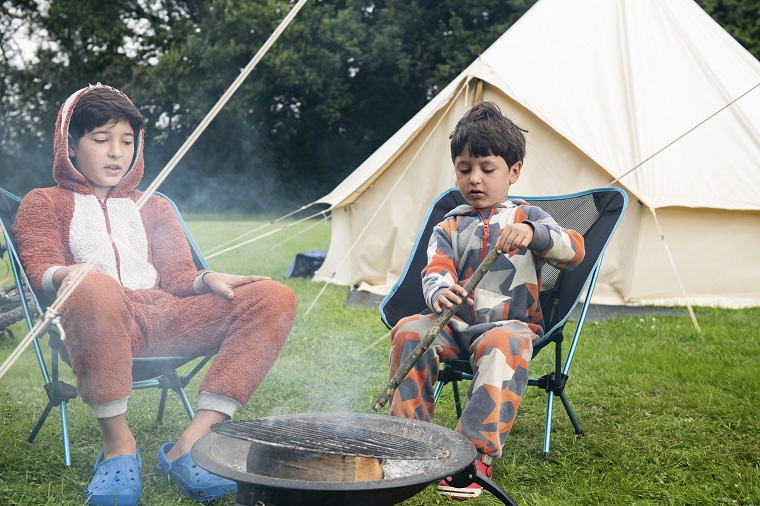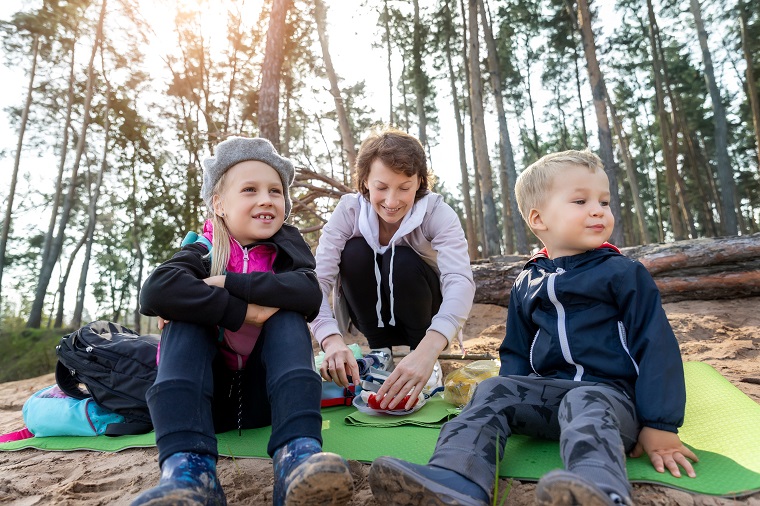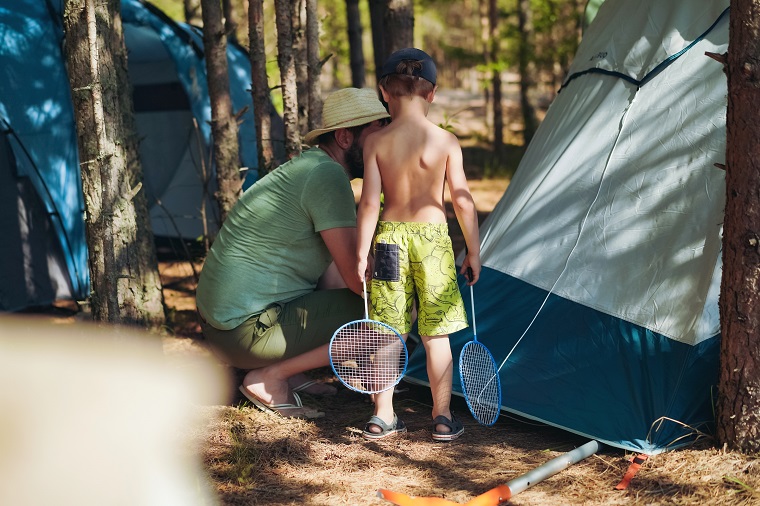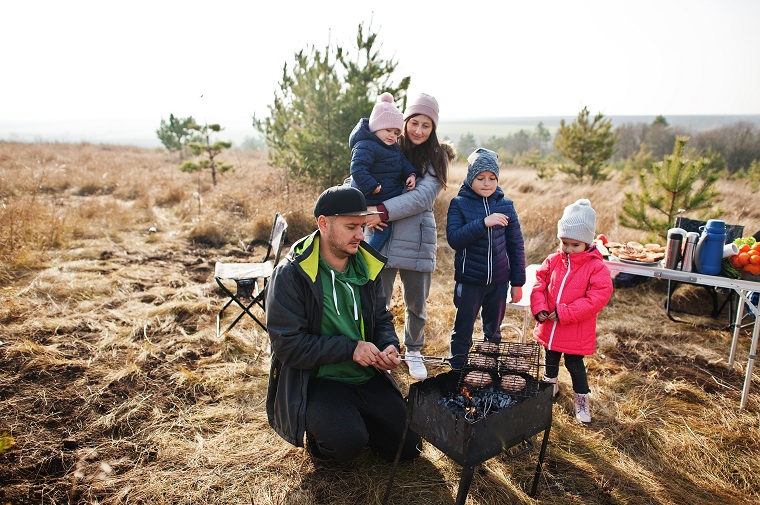

Children are spending less time outdoors and more time glued to screens. This shift has raised concerns about the developmental impact of limited exposure to nature and outdoor play. Research consistently shows that outdoor play in natural environments plays a critical role in a child’s physical, mental, and emotional development. Nature provides an ideal setting for exploration, creativity, and learning—elements that are key to fostering well-rounded and resilient children. In this article, we explore the vital role nature plays in child development and why outdoor play is essential for their growth.

1. Physical Health and Development
One of the most obvious benefits of outdoor play is its positive impact on children’s physical health. Engaging in outdoor activities like running, climbing, and playing sports helps children build muscle strength, improve coordination, and enhance overall fitness. Exposure to natural sunlight also provides essential vitamin D, which supports bone development and strengthens the immune system.
Additionally, outdoor play encourages active movement, reducing the risk of childhood obesity and promoting a healthier lifestyle from a young age. Natural environments like parks, forests, and open fields provide varied terrain that challenges children to use their bodies in different ways, fostering motor skill development and agility.
2. Cognitive Development and Problem-Solving Skills
Nature offers children an ever-changing environment that stimulates curiosity and encourages exploration. Outdoor play in natural settings promotes cognitive development by engaging children’s senses and challenging them to think critically. Whether they’re building a fort out of sticks, navigating through a forest trail, or observing the behavior of animals, children learn to problem-solve and make decisions independently.
The unpredictability of nature teaches children to adapt to new situations, boosting their ability to handle challenges and think creatively. This hands-on learning fosters critical thinking skills, curiosity, and a lifelong love of learning.
3. Emotional Well-Being and Stress Reduction
Children today face increasing pressures from academic expectations, extracurricular activities, and social dynamics. Nature provides a peaceful escape from these stressors and offers a calming environment where children can unwind. Studies have shown that spending time in nature helps reduce anxiety, improves mood, and promotes emotional resilience in children.
Outdoor play allows children to express themselves freely, releasing built-up energy and emotions. The natural world also provides children with a sense of wonder and joy, which contributes to their emotional well-being and fosters a positive outlook on life.

4. Social Development and Cooperation
Nature is a wonderful setting for social interaction, providing children with opportunities to engage with peers in unstructured play. Unlike structured indoor environments, outdoor play encourages children to collaborate, share, and work together toward common goals. Whether they’re organising a game of tag or building a sandcastle together, children learn important social skills such as communication, empathy, and teamwork.
In natural settings, children often engage in imaginative play that requires cooperation and negotiation, helping them develop conflict resolution skills. These interactions not only strengthen friendships but also prepare children for future social situations, both in school and in life.
5. Encouraging Creativity and Imagination
Nature is the perfect canvas for imaginative play. Without the restrictions of toys or technology, children are free to use their creativity to invent games, stories, and adventures. A fallen tree becomes a pirate ship, a rock is a throne, and leaves are currency in a make-believe world.
This type of imaginative play is essential for cognitive and emotional development. It helps children think abstractly, explore different roles and scenarios, and express themselves creatively. In an increasingly structured world, nature offers children the freedom to engage in open-ended play, which is crucial for nurturing creativity and innovation.
6. Building Independence and Confidence
Outdoor play in nature encourages children to take risks and face challenges in a safe and supportive environment. Climbing trees, crossing streams, or navigating a rocky trail requires children to push their physical and mental boundaries, helping them build confidence in their abilities.
When children are given the opportunity to explore nature on their own terms, they develop a sense of independence and autonomy. These experiences teach children to trust their instincts, assess risks, and make decisions, all of which contribute to building self-esteem and a sense of accomplishment.
7. Fostering a Connection to the Environment
One of the most profound benefits of outdoor play is the lasting connection it fosters between children and the natural world. When children spend time in nature, they develop an appreciation for the environment and a sense of responsibility for its protection.
Engaging with nature at a young age lays the foundation for environmental stewardship. Children who grow up playing in parks, forests, and gardens are more likely to care about conservation and sustainability as adults. This connection to nature is essential in cultivating future generations of environmentally conscious individuals who are passionate about protecting the planet.

Family barbecuing on a deck in the pine forest. Bbq day with grill.
Nature as a Vital Ingredient in Child Development
Incorporating outdoor play into a child’s daily routine is more than just fun—it’s crucial for their holistic development. Nature provides a rich environment where children can grow physically, mentally, socially, and emotionally. It encourages creativity, problem-solving, and social interaction, all while promoting a deeper connection to the natural world.
As we continue to navigate an increasingly digital world, it’s important to recognise the value of outdoor play and ensure that children have ample opportunities to explore and interact with nature. Whether it’s a visit to the local park, a hike in the woods, or simply playing in the backyard, these experiences are invaluable for a child’s overall well-being and development. By fostering a love for the outdoors from a young age, we help children grow into confident, resilient, and environmentally aware individuals. Murphys Creek Escape is a family friendly campground that is all about creating a child friendly environment to learn new skills in the Australian bush.
